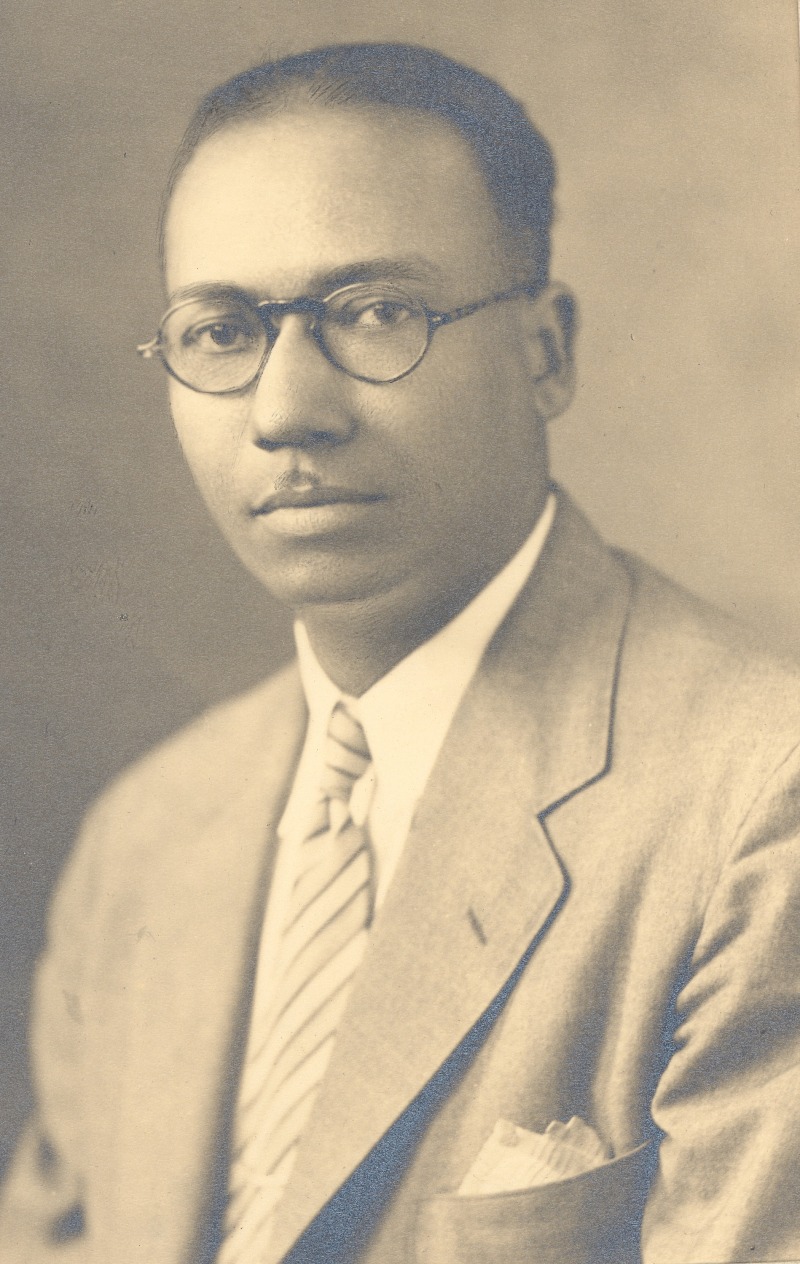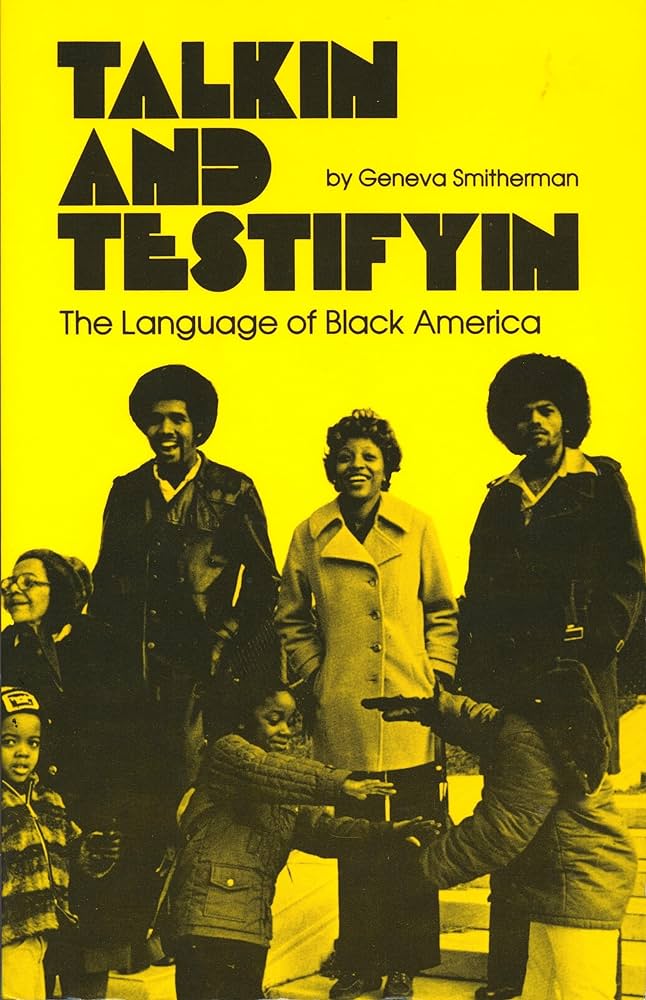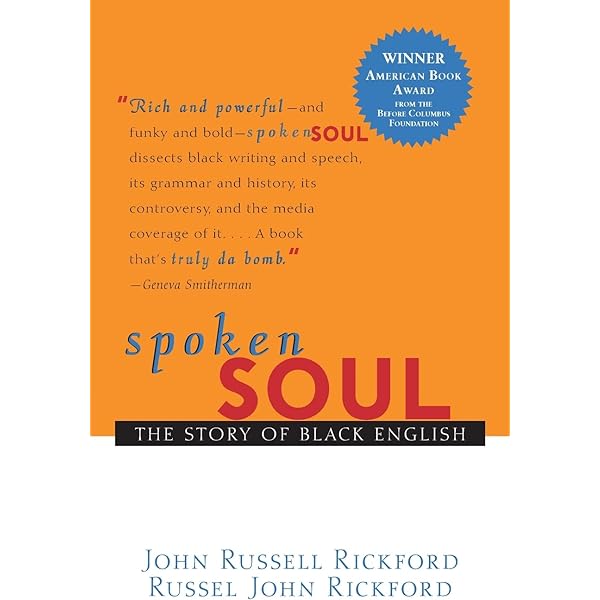Celebrating the Language of Shared Experiences
 Connie Chic Smith is Assistant Dean and Assistant Professor at the University of Virginia College and Graduate School of Arts and Sciences. Her doctoral research examined the use of African American English Vernacular in mainstream discourse by those outside of the African American community. She is co-founder and Vice President of Urban Think Tank Institute, the nation’s first think tank developed by and for members of the hip hop community. She is also a member of the National Communication Association, American Popular Culture Association, and Rhetorical Society of America.
Connie Chic Smith is Assistant Dean and Assistant Professor at the University of Virginia College and Graduate School of Arts and Sciences. Her doctoral research examined the use of African American English Vernacular in mainstream discourse by those outside of the African American community. She is co-founder and Vice President of Urban Think Tank Institute, the nation’s first think tank developed by and for members of the hip hop community. She is also a member of the National Communication Association, American Popular Culture Association, and Rhetorical Society of America.
The topic of language rarely, if ever, comes to mind when one contemplates celebrating Black History. But it certainly should. The contributions of Black Americans and people of African descent as it relates to human communication are far too significant to omit during the observance of Black History Month.
Black English, Negro dialect, Black slang, Spoken Soul, Ebonics, and African American English Vernacular (AAEV), are just a few of the names that have been used historically to describe the informal communication that began among and between many Africans on American soil. Research on the nuances of African American English Vernacular is not a new scholarly pursuit. George Krapp published the first article in 1924. However, the tireless research of Dr. Lorenzo Dow Turner (1949), known as the father of Gullah Studies, provided the first holistic exploration into the Creole language and Gullah culture. Turner’s work helped establish the study of African American English, pidgin, Creole, and African languages as full-fledged disciplines in academia. While teaching in South Carolina, Turner noted the similarities in the speech of residents of South Carolina and Georgia coasts with those of the people of West Africa.
 Prior to Turner’s Africanisms in the Gullah Dialect (1949), the prevailing ideology was that the speech of Africans in America and, by extension, African Americans, particularly those living in the Gullah region, was unintelligible or baby talk at best due to a variety of reasons including physiological inferiority. Dr. Turner’s seminal work put to rest the plethora of ill-informed myths regarding this matter.
Prior to Turner’s Africanisms in the Gullah Dialect (1949), the prevailing ideology was that the speech of Africans in America and, by extension, African Americans, particularly those living in the Gullah region, was unintelligible or baby talk at best due to a variety of reasons including physiological inferiority. Dr. Turner’s seminal work put to rest the plethora of ill-informed myths regarding this matter.
The presence of AAEV in the 21st century is a true testament to those who collectively created it out of sheer necessity: the need to survive and thrive. In lending my voice to the chorus of scholars on this issue, I’ve extended the definition of AAEV to capture some cultural dimensions associated with the language.
"AAEV conveys familiarity, kinship, communalism, expressivity, liberation, shared identities and/or experiences. It is void of hierarchical structure; it conveys a lateral exchange. AAEV is an informal everyday language because the vocabulary and phrases capture everything from the monotonous to the extreme maneuvers of navigating one’s way through life as an outsider" (Smith 2012).
In a society filled with technology in every sector possible, it may be surprising that AAEV is still relevant. The fact is that this oral phenomenon is still alive and well because of the persistence of inequities in the human condition. Most will agree that technology serves as an outstanding resource. However, some societal challenges need more than what tech can provide. Unfortunately, inequities may morph from one generation to the next, but they do not cease to exist. In inequitable spaces, moments, times, experiences, etc., people need familiarity, kinship, community, and freedom to be. AAEV is a form of communication that meets people where they are.
 AAEV helps individuals (even if only momentarily) look beyond their silos of age, race, geography, socio-economic status, gender identity, etc. and connect with others who are navigating the inequities that their own humanity has faced or is currently facing. AAEV erodes barriers established by rank and position. It reminds us that regardless of our political affiliations, the number of followers amassed on social media, or the letters behind one’s name, our humanity is the common denominator. So, asking a question to the woman ahead of you at the local DMV is not Excuse me Ms.; AAEV allows it to become Excuse me Sis. A trip to the local mechanic for an oil change closes with I appreciate you; have a good one; instead of thank you, have a nice day. The language that is AAEV is void of hierarchy because, as humans, we’re all dealing with something, i.e. life. This language conveys a communal experience, kinship, and familiarity that Standard English simply was not designed to express.
AAEV helps individuals (even if only momentarily) look beyond their silos of age, race, geography, socio-economic status, gender identity, etc. and connect with others who are navigating the inequities that their own humanity has faced or is currently facing. AAEV erodes barriers established by rank and position. It reminds us that regardless of our political affiliations, the number of followers amassed on social media, or the letters behind one’s name, our humanity is the common denominator. So, asking a question to the woman ahead of you at the local DMV is not Excuse me Ms.; AAEV allows it to become Excuse me Sis. A trip to the local mechanic for an oil change closes with I appreciate you; have a good one; instead of thank you, have a nice day. The language that is AAEV is void of hierarchy because, as humans, we’re all dealing with something, i.e. life. This language conveys a communal experience, kinship, and familiarity that Standard English simply was not designed to express.
 This Black History Month, as you honor the contributions of Black Americans and people of African descent, join me in celebrating the communal essence and humanity conveyed within the language of AAEV.
This Black History Month, as you honor the contributions of Black Americans and people of African descent, join me in celebrating the communal essence and humanity conveyed within the language of AAEV.
====
Footnote: Great reads on the subject matter include Geneva Smitherman's Talkin and Testifyin and John R. Rickford and Russell J. Rickford's Spoken Soul.
- A Revolution in the Air: The Wright Brothers Take to the Sky on December 17, 1903
- Musings on National Violin Day
- Making the Promise Real: How a UN Tax Convention Can Fulfill the UNDHR’s Vision
- UVA Club of Atlanta: Virtual Pilates Class
- UVA Club of Vietnam: J-Term Farewell Social
- UVA Club of Atlanta: UVA Women's Basketball at Georgia Tech